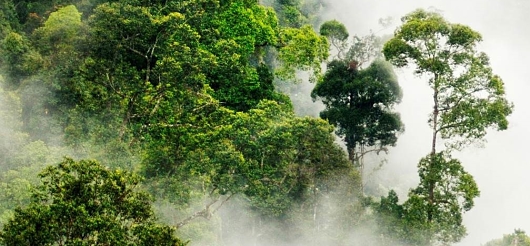A carbon-only approach to REDD+ won’t work. It will not help either climate or forests. Ex-post greenhouse gas emissions reductions will not be achieved if investments are not made in the environmental sustainability and social equity of the policies and measures adopted to address the drivers of deforestation and forest...
The novel feature of REDD+ –payments for results at the scale of national or subnational jurisdictions– is only now beginning to be tested, more than a decade since it was first embraced by the international community. Lessons are emerging about the degree to which such payments can prompt land use...
This policy brief provides an overview of the potential for scaling up community participation in forest management in Zambia as part of the country's REDD+ investment strategy. The report gives some insight on the legal and policy context for community forest management, joint forest management, and private forest management. It...
Women’s Inclusion in REDD+ in Cambodia - Lessons from good practices in forest, agriculture and other natural resources management sectors
08 November 2017
08 November 2017
The study is a part of the Joint Initiative of WOCAN, the UN-REDD Programme and USAID-funded LEAF Project to investigate practical entry points for women’s inclusion in Reducing Emissions from Deforestation and Forest Degradation (REDD+) policies and practices. It aims to explore the current status and effectiveness of policies and...
Gender analysis of Lam Dong’s provincial REDD+ action plan
08 November 2017
08 November 2017
This report highlights the key national strategies and international regulations on gender equality and women’s empowerment related to REDD+ and their relationship to the evolving PRAP for Lam Dong.
Information has been gathered from a literature review, a gap analysis, and interviews with key members of PRAP formulation team. Preliminary findings...
Women’s Inclusion in REDD+ in The Philippines - Lessons from good practices in forest, and other natural resources management sectors
08 November 2017
08 November 2017
This study is a part of the Joint Initiative of the USAID-funded LEAF Project, WOCAN, and the UN-REDD Programme to investigate practical entry points for women’s inclusion in Reducing Emissions from Deforestation and Forest Degradation (REDD+) policies and practices. It explores the current status and implementation of policies and practices...
REDD+ Learning Session 19: environmental service incentives in the state of Acre, Brazil
22 April 2016
22 April 2016
The Brazilian state of Acre in the Amazon -- home to the Sky Rainforest Rescue project -- is considered a global leader in defining a REDD+ policy framework. Acre's 2010 law that created the Environmental Service Incentives System (SISA in Portuguese), sets out a framework for valuing a range of...
Deforestation and forest degradation contribute nearly 20 percent of global greenhouse gas emissions annually. Thus a mechanism has been developed under the United Nations Framework Convention on Climate Change (UNFCCC) to offer incentives to developing countries for reducing emissions from deforestation and forest degradation (REDD). When REDD activities also cover...
Reducing emissions from deforestation and forest degradation (REDD+) is an
international climate policy instrument that is expected to tap into the large mitigation potential for conservation and better management of the world’s forests through financial flows from developed to developing countries. This paper describes the results and lessons learned from a...
Developing REDD+ policies and measures from the bottom-up for the buffer zones of Amazonian protected areas
22 April 2016
22 April 2016
A key activity in Phase 1 of REDD+—the UN’s Framework Convention on Climate Change (UNFCCC) forestry mitigation mechanism—is the development of policies and measures (PAMs) to define where and how emissions reductions and carbon stock enhancements and conservation will be achieved. This paper provides contextual data and information for the...

